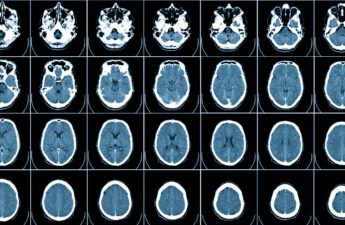Tag: Long Covid
Studies test possible treatments for long COVID
NIH to open long COVID clinical trials to study sleep disturbances, exercise intolerance, and post exertional malaise
Three in five long COVID patients have organ damage a year after infection
From this first set of scans, we found 331 participants (62%) had organ damage. Impairment of the liver, pancreas, heart and kidneys were most common (affecting 29%, 20%, 19% and 15% of participants respectively). These 331 participants were followed up six months later with a further MRI scan.
We found that three in five of the original study participants (59%) had impairment in at least one organ a year after infection, while just over one in four (27%) had impairment in two or more organs. So, for the vast majority of participants who had organ damage at six months, it was sustained until at least 12 months.
While in some cases participants with organ damage were no longer experiencing symptoms, organ impairment was associated with a higher likelihood of persistent symptoms and reduced function at 12 months.
We got some key things wrong about long COVID. Here are 5 things we’ve learnt
It can take months to recover lung function – and some people never do. COVID can increase the risk .of or worsen chronic diseases. Long COVID isn’t a single disorder. COVID shouldn’t be dismissed as a psychological problem
Black and Hispanic Americans found to experience more long Covid symptoms
Black and Hispanic Americans appear to experience more symptoms and health problems related to long COVI , a lay term that captures an array of symptoms and health problems, than white people, but are not as likely to be diagnosed with the condition, according to new research funded by the National Institutes of Health.
Most long COVID cases had mild initial infections, UW study finds
Study found that a staggering 90% of people living with long COVID initially experienced only mild illness with COVID-19. After developing long COVID, however, the typical person experienced symptoms including fatigue, shortness of breath and cognitive problems such as brain fog – or a combination of these – that affected daily functioning. These symptoms had an impact on health as severe as the long-term effects of traumatic brain injury. Our study also found that women have twice the risk of men and four times the risk of children for developing long COVID.
Got Long Covid? Medical Expertise Is Vital, and Seniors Should Prepare to Go Slow
Older adults who have survived covid-19 are more likely than younger patients to have persistent symptoms such as fatigue, breathlessness, muscle aches, heart palpitations, headaches, joint pain, and difficulty with memory and concentration — problems linked to long covid. But it can be hard to distinguish lingering aftereffects of covid from conditions common in older adults such as lung disease, heart disease, and mild cognitive impairment.
Long COVID: For the 1 in 10 patients who become long-haulers, COVID-19 has lasting effects
Long COVID, or post-COVID condition, features symptoms that can include trouble breathing, chest pain, brain “fog,” fatigue, loss of smell or taste, nausea, anxiety and depression, among others. It appears to affect about one in 10 people who have recovered from a COVID-19 infection.
Long Covid is Pitting Patients Against Doctors. That’s A Problem.
Long Covid patients have described feeling dismissed and “gaslit” by doctors who seem to question their illness — or who seem at a loss for what to do about it.
Deciphering the symptoms of long COVID-19 is slow and painstaking – for both sufferers and their physicians
Long COVID-19 often involves a constellation of symptoms affecting many parts of the body, but the most commonly reported are fatigue, shortness of breath, chest pains, cognitive changes, headaches, sensory changes and pain.
How does COVID affect the brain? Two neuroscientists explain
Many with long COVID report difficulty with attention and planning — known as ‘brain fog.’
Long COVID Renews Push to Expand Palliative Care
Studies suggest palliative care results in a higher quality of life for patients and lower health care costs.




